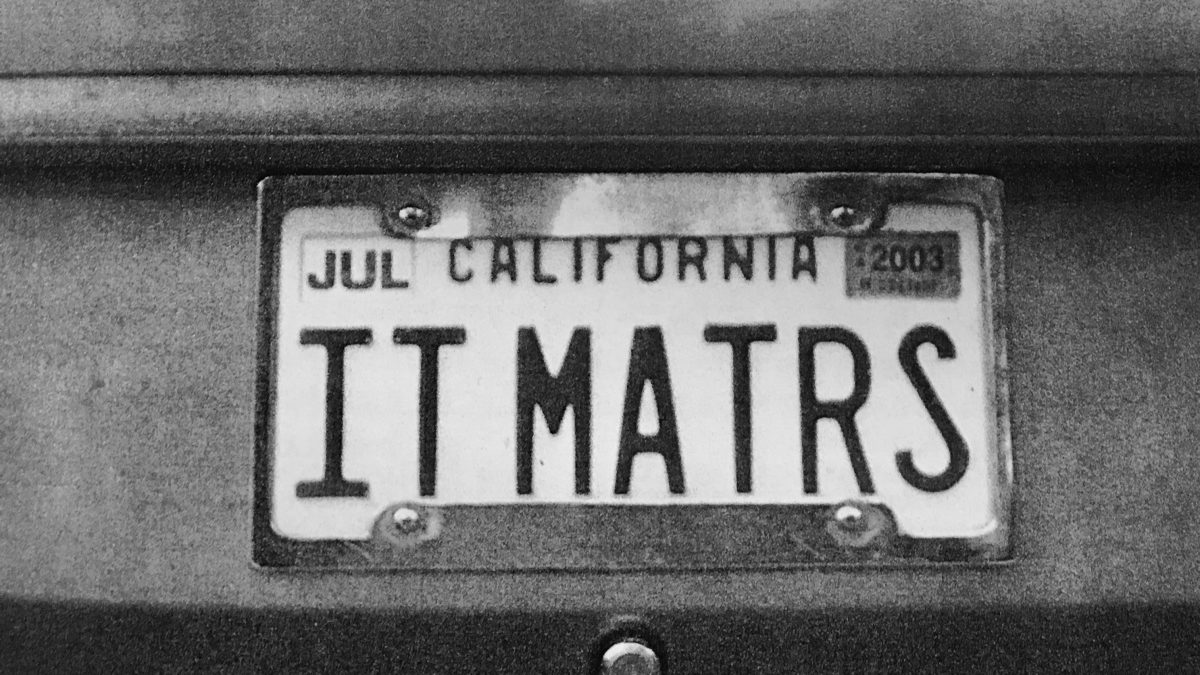
How do I find the right financial advisor?
March 16, 2022
Align your financial life with the dreams you want to protect
May 16, 2022
It snowed in Eugene, Oregon this week. In April. The snow didn’t stick but the rain that followed relocated the profusion of spring flowers. Previously gracing tree limbs, we now have very colorful sidewalks.
This cycle of life—birthing of the new bud, blossoming in mid-stride, passing into memory—got me thinking about my father, who would have turned 94 years old last week. This summer marks the 20th anniversary of his death.
My dad’s license plate captured his legacy gift, “IT MATRS.” One of his favorite moments in life occurred at gas stations or in parking lots. Someone would spot his car and ask him, “What matters?” He would smile his inimitable smile and in his trained-for-ministry voice would reply, “Yes.”
I am enthusiastic about helping my clients preserve their legacy, what I call a personal Continuity Plan, and sometimes I wonder if it’s because of what that “Yes” meant to him. The legacy he passed down to his children and grandchildren is to find what matters to you, and when you do, give it all you’ve got.
You are familiar with business owners who create continuity plans for their businesses, a road map for their successors to follow in case of death or disability. At some point in the future—who knows when—each of us will transition out of this life, and I believe we all want to do that in a way that preserves the beauty and meaning of what we have worked so hard to create. One of the ways to do that is to leave a Continuity Plan to give your loved ones such a road map.
My work with clients is to integrate their financial plan with their life plan. One of the reasons many people choose to work with a financial advisor is for the continuity, to have someone who knows where the accounts are located, why they are invested the way they are, the intentions behind the estate plans. This record keeping and document organization is both a practical timesaver and a comfort.
Beyond helping my clients organize these items to help their survivors manage the tasks they will need to do, I hope they will write personal letters, sometimes called Ethical Wills, setting down what is most important for them to say, to leave something meaningful and helpful.
Susan Turnbull, author of The Wealth of Your Life: A Step-by-Step Guide for Creating Your Ethical Will, says “You are at the intersection of what’s practical and profound.” A journalist, she discovered the historical tradition of ethical wills when she found one written 800 years ago. She realized capturing these intangible assets in a letter was “the missing piece of contemporary estate planning . . . We recognize there is more than money we want loved ones to inherit . . . and this can happen in our times with this idea from history. Values, emotions, heritage, intentions.”
Are you inspired to start? Try these ideas. Susan Turnbull recommends lists, such as “15 things I know to be true” or “Watch these movies and you’ll know what was important to me.” Kathleen Rehl, author of Moving Forward on Your Own: A Financial Guidebook for Widows, suggests “5 steps to write your legacy letter: who (is it for), thank you, 3 things life taught me, what matters to me, in closing.”
The important thing? Today you’re here, and able. Start. One day it will be too late. IT MATRS.
